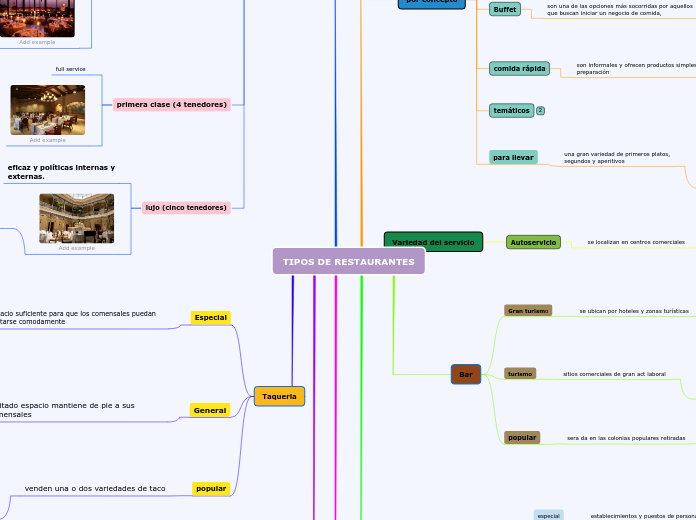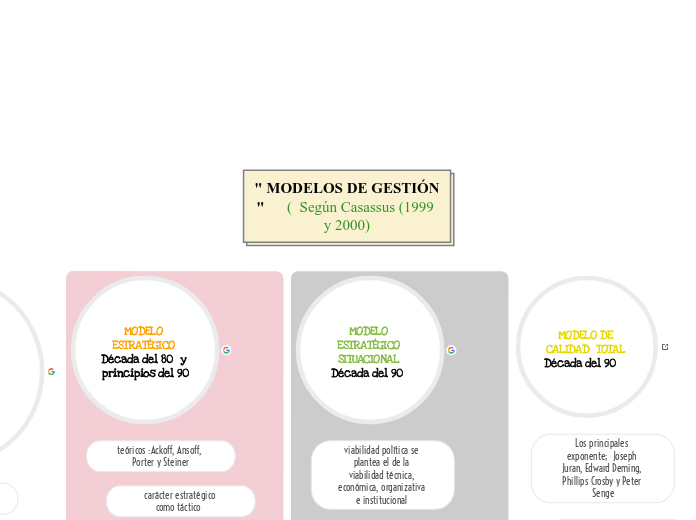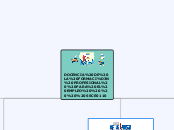TIPOS DE RESTAURANTES
In linguistics, syntax is the set of rules, principles, and processes that govern the structure of sentences in a given language, usually including word order.
Topic principal
Cafeteria y taquerias
A compound sentence is a sentence that has at least two independent clauses joined by a comma, semicolon or conjunction. An independent clause is a clause that has a subject and verb and forms a complete thought.
segunda categoría
cuenta con servicio de teléfono cafetería especial
primera categoria
Create your own compound sentences, using the coordinators above.
cuenta con una misma entrada por comensales y trabajadores
categoria especial
When independent clauses are joined with coordinators (also called coordinating conjunctions), commas and semicolons, they do more than just join the clauses. They add meaning and flow to your writing.
cuentan con comadas perzonalizadas e independientes
Taqueria
venden una o dos variedades de taco
General
limitado espacio mantiene de pie a sus comensales
Especial
Espacio suficiente para que los comensales puedan sentarse comodamente
Categoria
A complex sentence is a sentence that contains an independent clause and one or more dependent clauses.
An independent clause can stand alone as a sentence, but a dependent clause even though it has a subject and a verb cannot stand alone.
lujo (cinco tenedores)
Attributive clauses serve as an attribute to a noun (pronoun) in the main clause. This noun or pronoun is called the antecedent of the clause.
eficaz y políticas internas y
externas.
primera clase (4 tenedores)
An adverbial clause is a group of two or more words that function as an adverb in a sentence.
full service
segunda clase (3 tenedores)
An appositive clause follows another noun or noun phrase in apposition to it; that is, it provides information that further identifies or defines it.
su carta cuenta solo con seis tiempos
restaurante turístico, no tiene un acceso especial para los empleados y proveedores,
tercera clase (2 tenedores)
The subject clause is a dependent clause that acts as a subject.
sería considerado como un restaurante promedio, sin los lujos de restaurantes
más finos,
se necesita tener insumos resistentes sin
necesidad de ser lujosos,
cuarta clase (1 tenedor)
A predicative clause may be introduced by conjunctions - that, whether, whether... or, as, as if, as though, because, lest, the way - or connectives.
The latter may be conjunctive pronouns - who, whoever, what, whatever, which - or conjunctive adverbs - where, wherever, when, whenever, how, why.
Vajilla, cristalería y mantelería
sencillos, limpios y resistentes.
debe estar separado el comedor de la cocina, solo ofrece
un menú sencillo con al menos cuatro entradas.
Pulqueria
populares
muy pequeños algunos ambulantes
general
cuentan con el espacio minimo
especial
establecimientos y puestos de personas de bajos recursos
Bar
popular
sera da en las colonias populares retiradas
turismo
sitios comerciales de gran act laboral
Gran turismo
se ubican por hoteles y zonas turísticas
Variedad del servicio
Autoservicio
See the example below and try to create your own simple sentences.
Tim drives.
se localizan en centros comerciales
por concepto
para llevar
una gran variedad de primeros platos,
segundos y aperitivos
temáticos
An adverbial is an individual word (that is, an adverb), a phrase, or a clause that can modify a verb, an adjective, or a complete sentence.
de acuerdo al tipo de comida cocina italiana, francesa,
argentina,
comida rápida
The attribute is defined as a quality or characteristic of a person, place or thing.
son informales y ofrecen productos simples y de rápida
preparación
Buffet
The predicative is defined as an adjective or noun forming or contained in the predicate.
Its main trait is that it serves to express a property that is assigned to a 'subject'.
For e.g.: The dog is old.
son una de las opciones más socorridas por aquellos
que buscan iniciar un negocio de comida,
Familiar
Traditional grammar defines the object in a sentence as the entity that is acted upon by the subject.
Se sirven alimentos sencillos a precios accesibles, se caracteriza por el tipo de
servicio que es bastante confiable,
The direct object is the receiver of the action mentioned in the sentence.
Add example
Especialidad
The predicate of a sentence is the part that modifies the subject in some way. Because the subject is the person, place, or thing that a sentence is about, the predicate must contain a verb explaining what the subject does and can also include a modifier.
variedad limitada de estilos de cocina, su menú cuenta con diferentes
platillos de acuerdo a su especialidad.
Gourmet
The subject of a sentence is the person, place, thing, or idea that is doing or being something. You can find the subject of a sentence if you can find the verb.
Ask the question, 'Who or what 'verbs' or 'verbed'?' and the answer to that question is the subject.
alimentos son de alta calidad y servidos a la mesa, el servicio y menú es
muy parecido al de primera clase, en general se especializa
Subtopic









